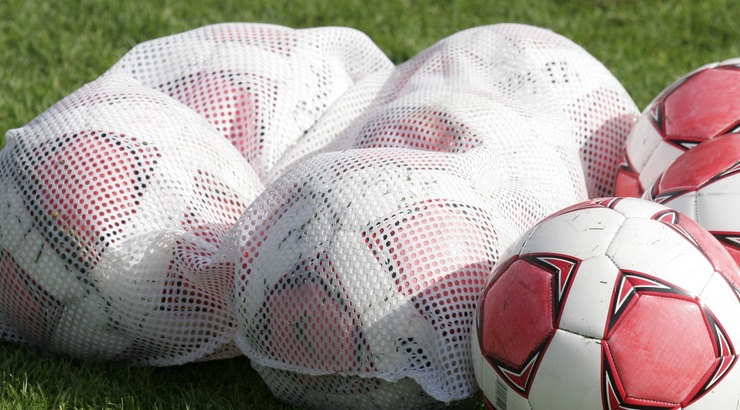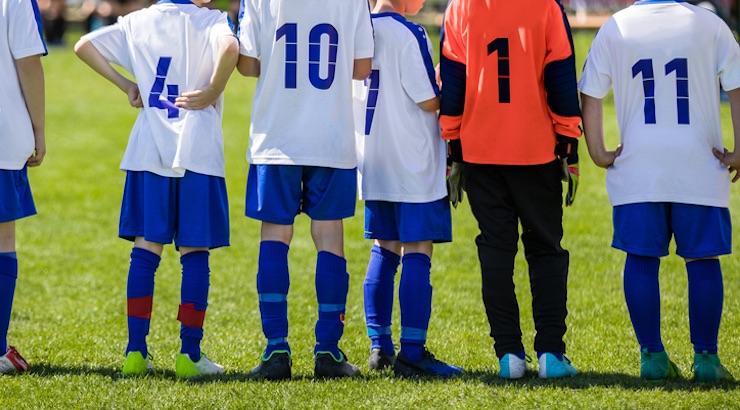Youth Soccer Coaches: Tips to help your evaluation sessions run smoothly
Youth Soccer News: Tryouts can be a hectic time for youth soccer organizations. There are anxious players, stressed parents sitting in the bleachers, and patient staff members trying to get the athletes checked in, organized and evaluated.
And then there is the league director, who’s hoping the day goes smoothly.
Instead of hoping, there are tactics directors can use to ensure tryout sessions are organized and go smoothly.
Youth soccer tryouts days are usually hectic and here are some great suggestions:
Tip #1: Conduct planning sessions
To ensure they are prepared for tryout sessions, directors should start planning for the evaluations months in advance.
- Communications should be sent to parents and players to announce when tryouts will be held, and any information they will need to know on how to register and what requirements players will be evaluated on.
- Directors should set a schedule for tryout sessions and be prepared to stick to it.
- Volunteers and staff members should be informed of when tryout sessions are being held and what their individual roles will be for the day.
- Scoring criteria for tryouts should be set and communicated to the evaluators.
- Evaluators should be trained on the evaluation software or forms.
Tip #2: Secure proper equipment
Bringing the right equipment might seem obvious, but it should still be part of tryout preparations. A list of all equipment needed – including cones, bibs, numbers, balls, and whistles should be compiled, and specific staff members should be assigned to ensuring the equipment is brought to the site. The equipment will also need to be set up for each drill.
 Tip #3: Organize registration
Tip #3: Organize registration
It’s important for registration to go smoothly.
If the check-in process is delayed, it can throw off the schedule for the entire tryout session. It’s also critical that each player is registered correctly, including having the right number and assigned to the correct tryout group.
To avoid any delays in registration, volunteers or staffers who are checking in players should be trained on the check-in process ahead of time and be at the tryout site early to ensure everything is set up and ready to go.
There should also be a process in place for players who arrive late, who register on-site, and for those who do not show up.
Tip #4: Conduct warm-ups
Often overlooked, the warm-up can be a critical part of the tryout. While it’s tempting to put most of the focus on the drills and skills the athletes will be evaluated on, the warm-up is an important period for the players.
“The must-have in any tryout or placement should incorporate a warm-up,” said Andrew Lenhardt, the Director of Coaching at Springfield (Ill.) Area Soccer Association (SASA).
The warm-up is important to help the athletes get loosened up and stretch, but it’s also a good activity to have players partake in while other athletes are getting checked in. This will keep the athletes focused on an activity and will keep the players all in one area.
This will also help separate the players from the parents, so if directors or coaches need to address the parents before tryouts begin, the warm-up period will give them a chance to do so.
 Tip #5: Keep drills on schedule
Tip #5: Keep drills on schedule
The meat of the tryout session is the drills players will execute. This allows each player to showcase their skills while the evaluators record their scores. It also allows the coaches and directors to observe the athletes for attributes the evaluators might not be looking for, such as hustle or attitude.
When determining the order of drills, it’s important to keep in mind where players are at physically and mentally at the start of tryouts.
“Allow the players to ease into the session with an easier skill to start with. This will help ease some of the anxiety,” Lenhardt recommends.
Each league may pick different drills to run during tryouts, depending on what skills they want to evaluate players on. The individual drills might also be followed by a scrimmage to see how players perform in game-time situations. Ideally, tryout sessions include both drills and game scenarios to allow each player to showcase critical skills.
It’s important to keep the drills on schedule to keep tryouts running smoothly. To ensure the drills keep moving at a set pace, it’s important for coaches and directors to try to only observe the players perform the skills and resist the urge to offer coaching advice during the evaluations. There will be plenty of time for coaching later post-tryout. Coaches and directors can take note of specific things they observed from each player and mention it later while sharing results with the individual players.
Tip #6: Assign evaluators
To ensure athletes are scored correctly during tryouts, evaluators should be assigned to specific drills and be trained on what to look for when assigning scores.
Lenhardt says at SASA they bring in independent evaluators to score the athletes to reduce the risk of biases during tryouts. For example, they’ve previously had the boys’ coaches evaluate the girls and the girls’ coaches score the boys.
Tip #7: Cool down
Just as the warm-up is important at the start of tryouts, a cooldown is important to have at the end of the evaluation session. This will allow the athletes to relax, catch their breath and reflect on the tryouts. A cooldown can include stretching or small exercises to help bring down the players’ heart rates.
The cooldown also provides a chance for coaches and directors to address the players before they leave. All of the players will be in the same space and should be quiet, allowing the league leaders to communicate important information like when the players will be informed if they made the team, and how the results will be shared.
Are you ready to start planning your next tryout? Check out our free Tryout Preparation Checklist to make sure you’re dotting your i’s and crossing all of your tryout t’s.
Chris Knutson is co-founder of TeamGenius, a leading player evaluation software that helps youth sports organizations by streamlining tryouts and player evaluations.






